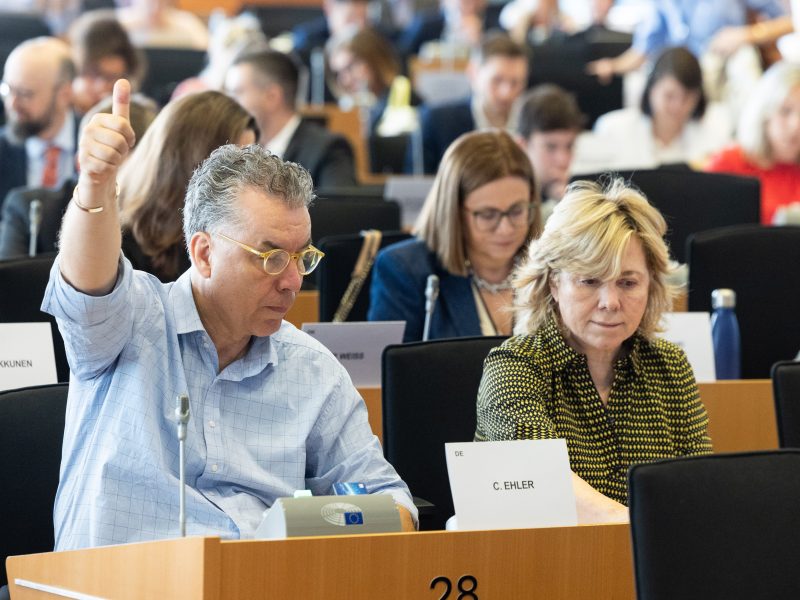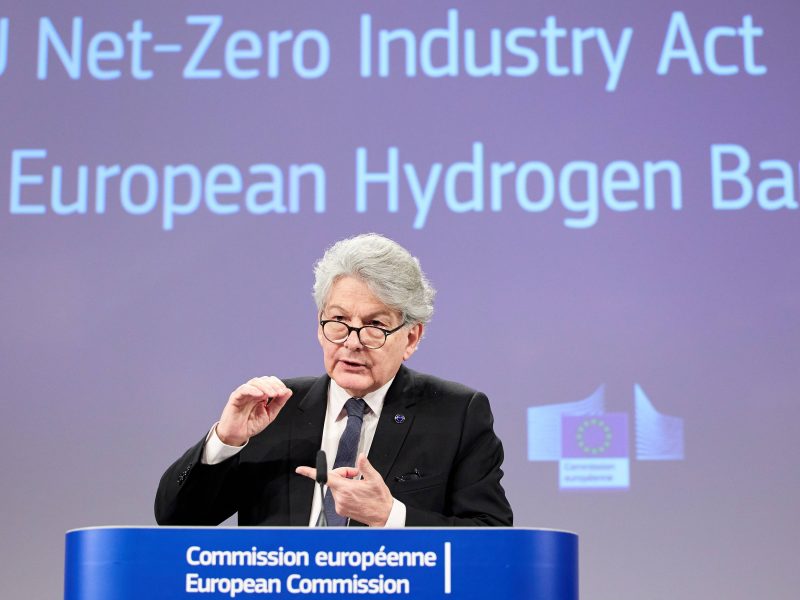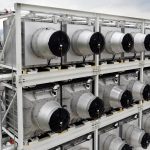
The European Parliament’s industry committee voted on Wednesday (25 October) to put nuclear back on the list of technologies eligible for preferential treatment as Europe looks to reshore production of technologies deemed crucial for a net-zero world.
The European Commission tabled its Net-Zero Industry Act in March this year as a response to the US Inflation Reuction Act, which provides billions in subsidies for clean industries.
The law singles out key technologies that will be eligible to receive faster permits and looser state aid oversight from EU competition authorities to ensure a share of production takes place in Europe.
“Europe is finally getting serious on industrial policy,” said Christian Ehler, a German conservative lawmaker who is the Parliament’s speaker on the proposal. The committee backed this approach with 43 votes in favour and 12 against.
The initial proposal caused controversy by reserving regulatory perks only for “strategic” technologies – such as solar panels, batteries and heat pumps – while excluding others like nuclear power.
But Ehler’s compromise text, backed by the Parliament’s centrist Renew and Socialist groups, does away with this distinction by expanding the list to 16 technologies – including all types of nuclear fission, as well as fusion, sustainable fuels, and biogas.
The overarching goal remains the same: 40% of the listed technologies installed on the continent should be made in Europe, although this is an aspirational target and not a legally-binding obligation.
The move, although welcomed by pro-nuclear MEPs as well as supporters of eFuels and biogas, was decried by Green lawmakers.
“Today’s vote by the Industry Committee has turned the Commission’s proposal on the Net Zero Industry Bill for the worse,” the Greens’ Henrike Hahn stressed in response.
By abolishing the list of strategic technologies and expanding the climate-neutral list, the compromise would “de facto open the door to strategic projects for just about any technology, including nuclear,” she added.
According to green activists, the Parliament has “lost focus” in its quest to please everyone.
“Changing the scope of the Net Zero Industry Act risks diverting taxpayers’ money from the key green technologies we need to decarbonise our industry,” said Camile Maury from WWF’s EU policy office.
Nuclear advocates, on the other hand, were cheerful.
“I ensured that all technologies useful for our climate objectives were included,” said Renew’s Christophe Grudler, who hails from France and had made boosting nuclear’s standing his key objective in the negotiation.
Boost for carbon capture and storage
Advocates of carbon capture and storage, a key technology to decarbonise parts of industry, welcomed the compromise text as well.
While lawmakers upheld a proposed target to store 50 million tonnes of CO2 per year in Europe, they added a provision that calls on the European Commission to propose targets for 2035, 2040, and beyond.
Clean Air Taskforce, a non-profit group, lauded the “expansion of the scope to CO2 transport” instead of purely storage as initially proposed. Additionally, “Parliament aims to ensure open and fair access, transparent pricing, and competitive CO2 markets,” said Alessia Virone, in charge of the group’s government affairs in Europe.
Instead of producers, sellers should be obligated to ensure the storage of CO2, Parliament decided.
Bellona, a Norwegian green NGO, noted that this provision was “too unclear on whom exactly the responsibility falls on, potentially diluting the obligation”.
The agreement in the industry committee needs to be confirmed by a vote in the Parliament’s plenary in November, which would pave the way for the start of final negotiations with EU countries – who have yet to agree on a joint position.
[Edited by Zoran Radosavljevic and Frédéric Simon]









